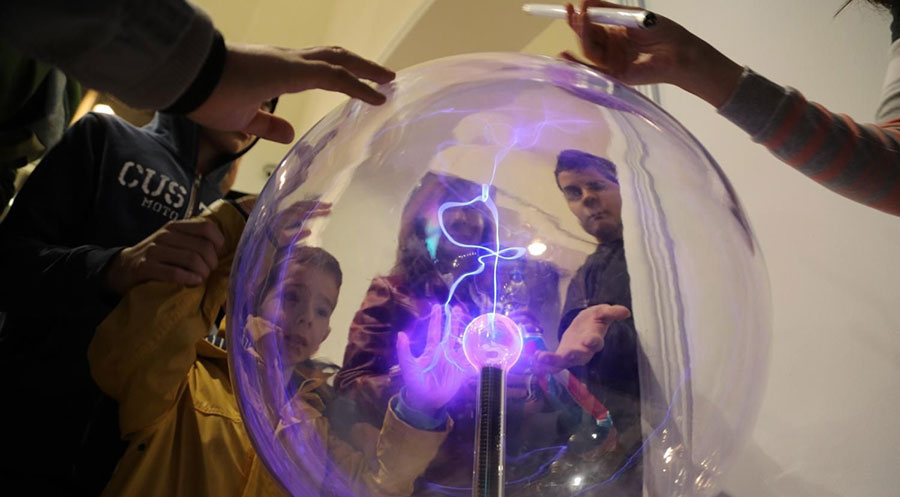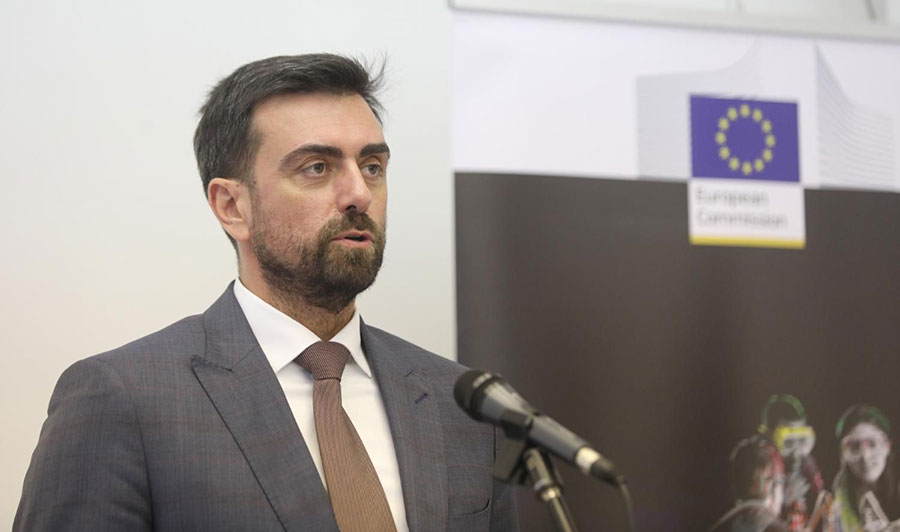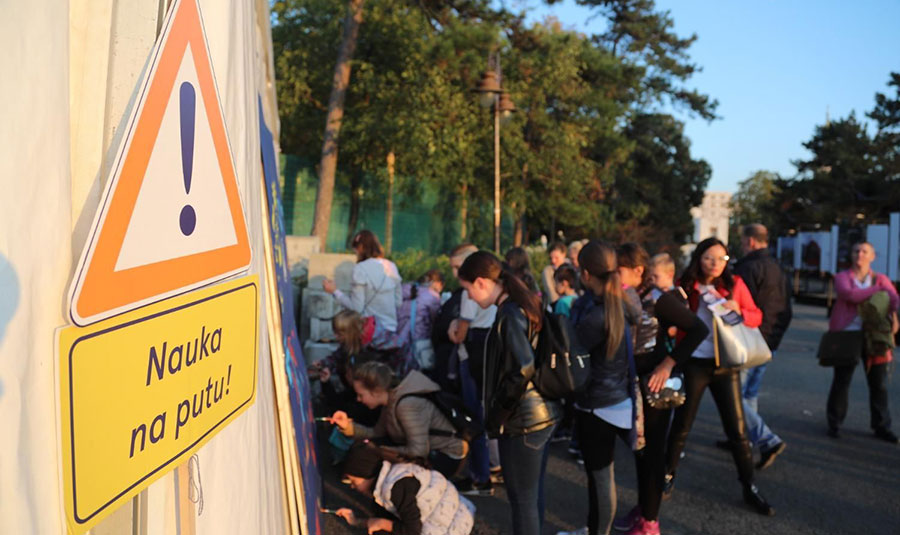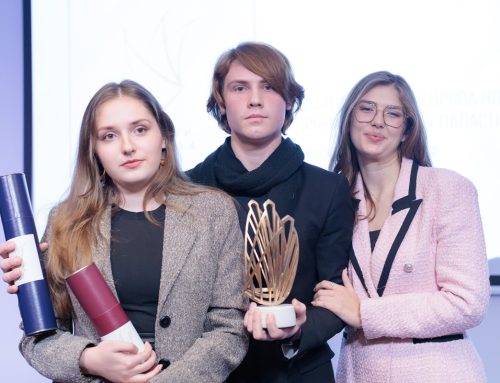The eight edition of the Researchers’ Night 2017, the event aimed at popularisation of science and learning through play taking place simultaneously in 340 cities in 26 countries around the globe, was launched at the French Institute in Belgrade.
This year’s edition was held under the slogan “Knowledge at First Sight” in 11 cities and towns across Serbia: Belgrade, Novi Sad, Kragujevac, Nis, Pirot, Pozarevac, Petnica, Indjija, Zrenjanin, Sabac and Subotica.
The project is funded through Horizon 2020, EU’s largest programme aimed at research and innovation within Maria Sklodowska Currie Actions.

FoNet
In Belgrade, the event took place on several sites: the French Institute, Goethe Institute, the Gallery of Science and Technology of SASA, the Museum of Vuk and Dositej, the Belgrade Science Club, Sava Promenade, Borba Fountain, Kalemegdan Summer Stage and Big Fashion shopping mall. Entrance was free to all events.
The Institute for Biological Research Sinisa Stankovic of the University of Belgrade was in charge of the coordination of ReFokus project of the Researchers’ Night in Serbia, in partnership with the Faculty of Science and Mathematics of Nis, the Centre for Promotion of Science and the Institute for Protection of Cultural Monuments in Kragujevac.
In his opening remarks, Steffen Hudolin of the EU Delegation to Serbia said that the Researchers’ Night was among the most popular EU initiatives.

FoNet
According to him, in 2016, the event was held in over 280 cities and participated in by 11,000 researchers and over a million people around the world, attracting the attention of nearly 60,000 citizens in Serbia alone.
“European Researchers’ Night offers an opportunity to bring the widest audience, the youth in particular, closer to fascinating scientific research and achievements which have a direct impact on our lives. This is an opportunity to incite curiosity in young people, to turn them into scientists themselves, at least for a day,” Hudolin said.
He said that the Researchers’ Night was above all an opportunity to have a great time and talk about science in a clear and compelling manner.
European Commission representative Przemyslaw Jankowski said that the Researchers’ Night took place simultaneously in 340 cities in 26 countries around the world.

FoNet
“The Researchers’ Night is expected to attract a million people,” said Jankowski and added that it was not intended only for adults, but children in particular, as they proved to be the event’s most loyal visitors.
“Researchers are faced with a great challenge of translating their knowledge into a language that can be understood by both children and adults,” he said.
Charge d’affaires and First Counsellor of the French Embassy in Belgrade, Nicolas Faye said that “the event attracts attention primarily due to its playful way of allowing everyone to fathom the mysteries of science.”
“European Researchers’ Night is an invitation to get together, discover, exchange and share opinions and be surprised by innovative activities through which the researchers make their work known,” Faye said.




